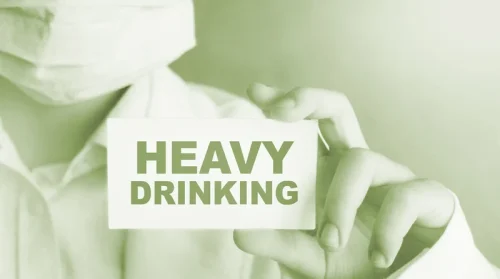
As there is no “cure” with addiction treatment, success in recovery from alcohol addiction is not usually measured by a complete absence of the desire to drink. Instead, successful alcohol recovery involves a complete rebuilding and reshaping of your life. It encompasses improved physical and mental health, mending relationships, and making positive, lasting lifestyle changes. There are many different ideas about what alcoholism really is.
- Allowing a person to safely detox and begin therapy during this portion of their stay will help get to the root of their addiction, which can ensure that they have a reduced risk of relapsing.
- UKAT is standing by to help you start addressing your problem right away.
- The most important physiological medical treatment is detoxification—the safe withdrawal of the patient from alcohol, usually in a hospital setting.
- For clinical and research purposes, formal diagnostic criteria for alcoholism also have been developed.
- Unlike other antiseptics and antibiotics, pathogens (harmful germs) do not seem to develop resistance to alcohol-based sanitizers.
COVID-19: Alcohol-based sanitizers are safe for everyone to use

Members is that alcoholism is a progressive illness that can never be cured but that, like some other diseases, can be arrested. Before they are exposed to A.A., many alcoholics who are unable to stop drinking think of themselves as morally weak or, possibly, mentally unbalanced. Concept is that alcoholics are sick people who can recover if they follow a simple program that has proved successful for more than two million people. Once alcoholism has set in, there is nothing morally wrong about being ill. At this stage, free will is not involved, because the sufferer has lost the power of choice over alcohol.

COVID-19: Adding pepper to your soup or other meals DOES NOT prevent or cure COVID-19
As a result, patients are able to handle stressful situations and various triggers that might cause another relapse. Behavioral therapies can also enhance the effectiveness of medications and help people remain in treatment longer. For many people, alcohol seems inextricably linked with a social life. Friends gather for after-work drinks, spouses have cocktails together for “date nights” or some may just be in the habit of ending the day with a beer or a glass of wine—or two—or more. It can be hard to identify the lines between casual and occasional drinking and unhealthy alcohol use including alcohol use disorder. It is generally accepted that a comprehensive programme of recovery needs to incorporate detox, rehabilitation, and aftercare.
The Risks of Alcohol

Make sure can alcoholism be cured you clean your hands frequently and thoroughly and avoid touching your eyes, mouth and nose. Clean hands protect patients, health workers, other caregivers and everyone from infection. Cleaning your hands is one of the key measures to prevent disease. People who have AUD may continue to use alcohol even though they know it is causing social, health, economic, and possibly even legal problems in their life.
- But the criteria for alcoholism have nothing to do with those factors.
- However, brief outpatient interventions are most successful when the process of addiction is still in very early stages.
- If we maintain a commitment to do what is necessary to treat our condition, we essentially are cured.
- Key to all of them is helping clients understand their condition in both physical and psychological terms.
- As a result, you may feel that to seek help is to admit some type of shameful defect in yourself.

Any physical dependency issues that cause withdrawal symptoms contribute to the problem as well. About 80 percent of all people with long-term alcoholism develop this condition due to the way their body becomes starved of thiamine from poor nutrition. Some Oxford House people develop alcoholism because of pressure from their peers who are heavy drinkers too. The reason that brain damage from alcoholism seems to occur is because of the way that it depletes the level of thiamine in the body, which is an important vitamin that is necessary for brain health. Most people know about the damage that the heavy consumption of alcohol causes to their liver.
It’s also used to describe drinkers who are not addicted or dependent but tend to experience problems involving alcohol. Hot peppers in your food, though very tasty, cannot prevent or cure COVID-19. The best way to protect yourself against the new coronavirus is to keep at least 1 metre away from others and to wash your hands frequently and thoroughly. It is also beneficial for your general health to maintain a balanced diet, stay well hydrated, exercise regularly and sleep well.
Like a marathon runner benefits from the support and encouragement of others, you can benefit from the support provided by your treatment providers, counsellors, friends, and family. But with a combination of your persistence and the support of those around you, you can make it. Note that counselling often continues even after formal treatment has ended. If you were to complete an inpatient treatment plan, counselling would be provided through an aftercare programme. How long counselling continues depends on how well you respond to it.
- The way beginning rehab takes place will depend on the type of treatment program you choose.
- If you can safely drink alcohol and you choose to drink, do so in moderation.
- For one, there needs to be an assessment of how addicted a person is to a substance and even what substance they are using.
- After your body has been fully cleared of alcohol and the worst of the withdrawal symptoms have subsided, you’ll move into the next phase of your rehabilitation.
For people with addictions to drugs like stimulants or cannabis, no medications are currently available to assist in treatment, so treatment consists of behavioral therapies. Treatment should be tailored to address each patient’s drug use patterns and drug-related https://ecosoberhouse.com/ medical, mental, and social problems. Relapse rates for drug use are similar to rates for other chronic medical illnesses.